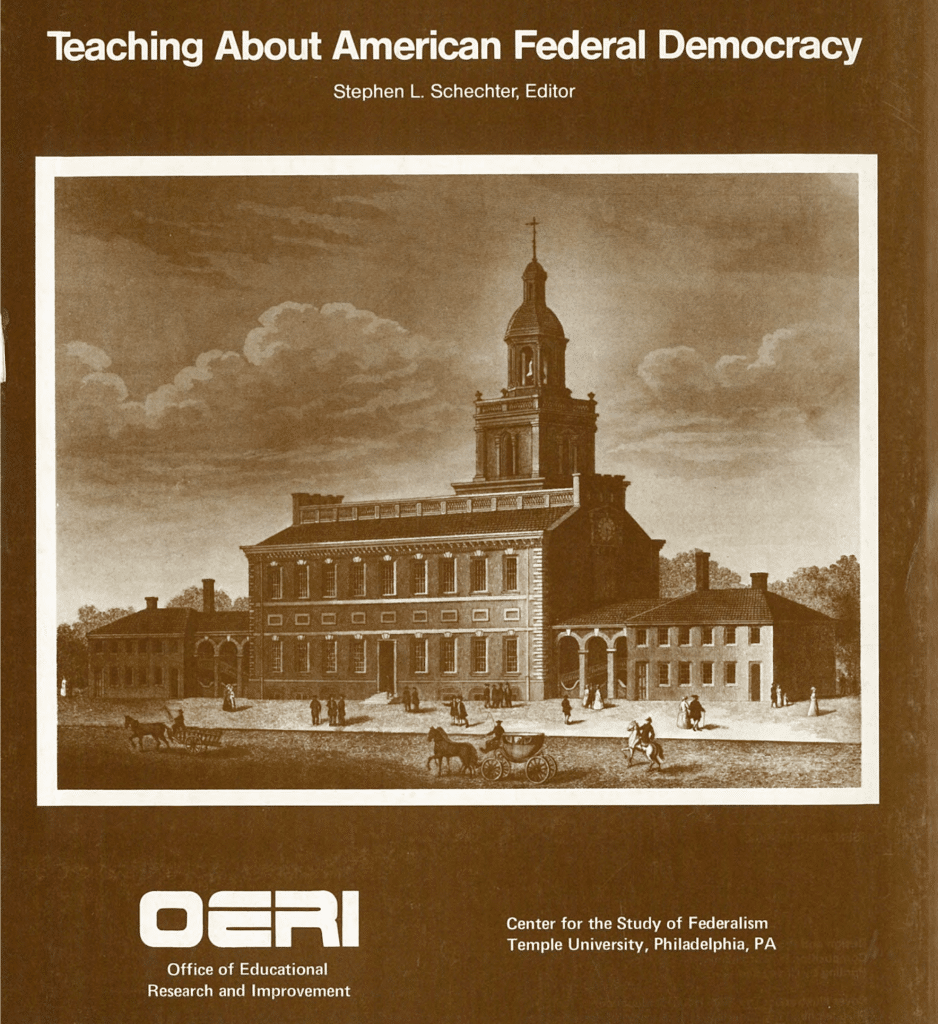The Center for the Study of Federalism is pleased to share federalism course syllabi and examples of federalism class assignments and projects. If you are teaching a course on American Federalism, Comparative Federalism, or federalism of another country (e.g., Canadian Federalism), please send us your syllabus or class assignment or project for consideration for posting on the CSF website csf@federalism.org
Federalism Syllabi
POL 6/70105: Federal & State Policymaking Christopher P. Banks,
Kent State University, Spring 2018
Brief Description: This course covers the theory and practice of federalism with emphasis on its consequences for policy outcomes. Students also examine the transformation of the policy role of state governments in relation to the national government. We study these perspectives through a lens of American Political Development, an academic sub-discipline in political science that has gained substantial traction and salience in recent years.
After tracing federalism’s historical origins and its political implications, the resurgence of states’ rights and sovereignty contemporary policymaking arguments are studied through a “new federalism” paradigm that took hold as a political challenge to New Deal centralization in the post-Nixon administration years. Thereafter, specific illustrations of contemporary applications of federal and state policymaking initiatives and responses are considered in several realms of policy, including health care, gun rights, marijuana regulation, immigration, and national security policymaking.
URPA 5309: Federalism and Intergovernmental Relations Richard L. Cole,
University of Texas-Arlington Fall 2014
Brief Description: This course is designed to introduce students to a sampling of the literature in federalism and intergovernmental relations with a special focus on the implications of federalism and its changing nature on state and local management and on policy and policy making in the United States. Although the focus is primarily on intergovernmental relations as they exist in the United States, we will occasionally touch on federal issues in a comparative context.
AHG 660: The Federal System John Dinan,
Wake Forest University Summer 2018
Brief Description: This course examines the origin and development of the U.S. federal system. We focus on debates and developments regarding the extent of federal and state authority at pivotal points in American history – including the framing of the U.S. Constitution, state challenges to federal authority in the early republic, expansion of federal power via the Civil War Amendments, New Deal and civil rights movement – and then examine conflicts between state and federal authority in the contemporary era on issues such as education policy, marijuana regulation, and immigration.
Political Science 1905: E Pluribus Unum? The States, the Feds, and the Contested Meaning of American Federalism Andrew Karch,
University of Minnesota, Twin Cities Fall 2015
Brief Description: This course seeks to give students a better understanding of American federalism. By examining both the historical evolution of intergovernmental relations in the United States and contemporary policy debates, it also aims to help students develop the substantive knowledge and analytical skills they need to become critical thinkers.
All of the writing assignments that students will complete in the course have been designed with this objective in mind, and all of our seminar discussions will emphasize systematic thinking about politics, the explication of logically coherent arguments, and the use of relevant and appropriate empirical evidence to evaluate those arguments. The successful development of the critical thinking and writing skills emphasized in this course will enable students to communicate effectively in a variety of future roles, including as employees and citizens.
Government 310: Politics, Policy, and Law in American Federalism John Kincaid,
Lafeyette College Spring 2018
Brief Description: In the course, we will seek to analyze and understand (1) the place of federalism in Western political thought and theology, (2) the theoretical and political origins of American federalism, (3) the American contributions to the theory and practice of federal democracy, (4) the constitutional and legal bases of the federal system, (5) the historical phases and changing conceptions of federalism in the United States, (6) the legal, political, administrative, and fiscal dynamics of relations among the nation’s more than 90,056 governments, (7) the intergovernmental institutions and processes that shape the formation, implementation, and outcomes of public policy, and (8) the impacts of federalism on specific policy issues, such as civil rights and liberties, economic regulation, environmental protection, crime, health care, and foreign affairs.
Federalism Class Assignments & Projects
Library of Congress Teaching Resource: Federalism and Air Pollution Policy
Jen Reidel, the Library of Congress teacher in residence, has prepared a guide for using the library’s resources to teach about federalism and the origin of federal air pollution policy.
State Constitutional Rights Federalism
(aka The New Judicial Federalism)
This presentation by CSF Fellow John Kincaid traces the development of the New Judicial Federalism starting with the Pruneyard Shopping Center v. Robins (1980).
United States v. Lopez (1995)
This presentation by CSF Fellow John Kincaid explores the federalism implications of the U.S. Supreme Court’s U.S. v. Lopez (1995) decision.
